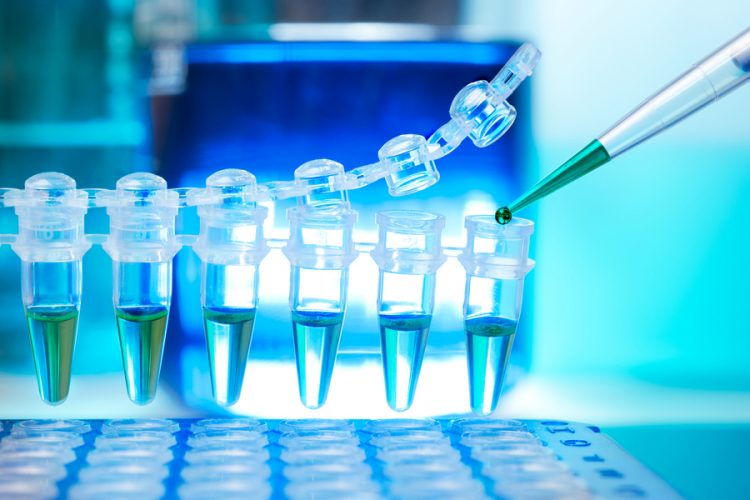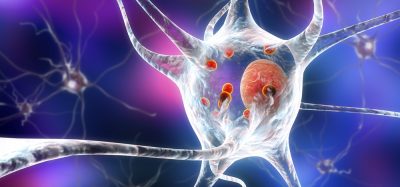Biomarker identification in the realm of rare diseases
Posted: 7 May 2024 | Dr Luke Piggott (Debiopharm), Ellen Capon (Drug Target Review) | No comments yet
In this Q&A, Debiopharm’s Principal Scientist Dr Luke Piggott defines the critical requirement of biomarkers for identifying rare diseases. He illuminates how AI-enhanced approaches are accelerating the drug discovery process, particularly regarding clinical trial enrolment, and the breakthroughs he hopes to see in the future.


Why are biomarkers particularly critical in the context of rare diseases?
Developing novel therapeutic approaches for rare diseases poses inherent challenges due to the limited populations available for testing. Small patient populations often result in difficulty in determining a significant effect of a therapy, given the low confidence power associated with the statistics. By identifying predictive biomarkers and enrolling patients based on the presence or absence of these biomarkers, regardless of disease subtype, it becomes possible for patients with rare diseases to enrol in larger studies and have access to therapies quicker.
What challenges do the limited prevalence of biomarkers pose for their identification and validation, and how can these challenges be addressed?
Not all biomarkers have a limited prevalence. However, some biomarkers may only be present in a minority of patients, requiring a large patient population to identify such markers. Additionally, biomarkers can vary across different indications, further narrowing the scope and increasing the complexity for identification. It is important to invest in preclinical studies to uncover such biomarkers where large screening efforts can provide valuable insights. Furthermore, we are seeing an increase of in silico approaches utilising AI to interrogate large datasets, enabling the discovery of bespoke biomarkers even in small patient populations.
How do AI-enhanced approaches accelerate the drug development process for rare diseases?
AI holds the potential to revolutionise different aspects of healthcare, particularly in the realm of clinical trials. By leveraging AI technologies, we could create a more accessible and equitable approach to clinical trials, breaking down barriers to participation and ensuring diverse representation among participants. For instance, AI algorithms could facilitate patient-trial matching, encompassing medical records, genetic information, demographics, and personal preferences. These algorithms can swiftly navigate extensive databases of clinical trial information to pinpoint potential matches between patients and trials, considering various factors such as treatment protocols and geographical considerations. This personalised approach not only enhances efficiency by automating the matching process but also fosters inclusivity by connecting patients from diverse backgrounds with trials tailored to their unique characteristics and medical needs.
AI could also be applied to large datasets that have been curated over the years, combining them to uncover new insights and accelerating the pace of medical discovery. Moreover, the application of synthetic control arms presents the opportunity to transform the trial process itself. By reducing the requirement of placebo-controlled trials, all patients enrolled in a study can receive therapeutic intervention, potentially speeding up the evaluation of new treatments and improving patient outcomes.
In what ways do biomarkers assist in assessing treatment responses in patients with rare diseases, and could you provide examples of specific biomarkers and their utility in this context?
In 2020, 78 percent of orphan drugs and biologics approved were targeted therapies. Recent studies indicate that biomarker-driven trials in oncology, particularly those utilising predictive biomarkers, have shown a higher overall success probability, roughly double the standard rate. Furthermore, the incorporation of response biomarkers offers early insight into a drug’s effectiveness, preventing the continuation of a treatment. This proactive approach minimises the unnecessary continuation of ineffective treatment, affording patients the opportunity to transition to potentially more beneficial alternatives sooner.
What breakthroughs or advancements do you hope to see in the near future regarding rare disease biomarker research?
A key breakthrough lies in enhancing the identification of tumour agnostic biomarkers for response to therapies and the broader application of these approaches. Conducting tumour agnostic biomarker trials would allow rare disease patients the opportunity to enrol in larger studies, offering a broader range of therapeutic options. Increased funding and economic incentives would further accelerate the identification of biomarkers and drug development in the realm of rare diseases.
About the author


Dr Luke Piggott, Principal Scientist, Debiopharm
Luke Piggott possesses extensive experience in developing novel therapeutics, spanning from discovery to clinical trials. At Debiopharm, he has overseen both preclinical and clinical pharmacology of assets from phase I to III. He demonstrates a profound understanding of clinical research procedures (ICH GCP) and excels in interpersonal communication, fostering relationships and collaborations with key opinion leaders (KOLs). His expertise lies in oncology, encompassing the pre-clinical and clinical development of innovative therapeutics from concept to late-stage clinical trials.
Related topics
Artificial Intelligence, Biomarkers, Clinical Trials, Drug Discovery, Oncology, Personalised Medicine, Targets
Related organisations
Debiopharm








